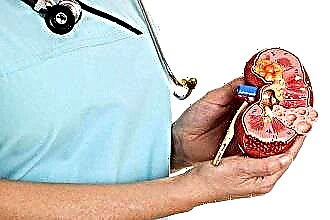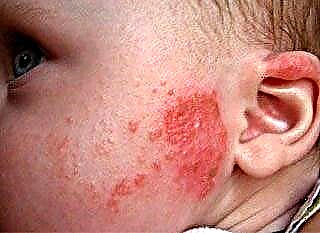Painful sensations in the heart area do not always signal problems in the cardiovascular system. Cardialgia and shortness of breath may indicate autonomic and nervous disorders, pathology or injury of the spinal column, neuralgia. Often, pain in the heart appears with damage to the respiratory system, gastrointestinal tract. The most common causes of cardialgia and rapid breathing in young people are nervous system dysfunction and emotional lability. To establish the correct diagnosis, it is necessary to consult a doctor as early as possible for examination and diagnosis.
Causes of the combination of pain and shortness of breath
Many factors affect heart rate, respiration, and blood pressure readings. The main part in regulation is played by the sympathetic and parasympathetic nervous systems, endocrine glands, and receptors of blood vessels. Disruption of the work of one of these structures is indicated by high blood pressure, symptoms of cardialgia and shortness of breath. If you are worried about aching pain in the heart and there is not enough air, doctors understand the reason, since the situation can speak of many diseases. Patients with chronic cardiovascular pathology (diabetes, hypertension, coronary artery disease) should be more attentive to the state of health when such signs appear. Such people stabbing pain in the heart and shortness of breath can be associated with the following diseases:
- acute coronary syndrome, heart attack;
- inflammation of one of the cardiac membranes of the heart, pericardium, myocardium or endocardium;
- cardiomyopathy with severe hypertrophy of the heart;
- spasm of the coronary vessels against the background of ischemic disease, an acute attack of circulatory failure;
- acute attack of angina pectoris after walking;
- a sharp increase in pressure, hypertension;
- complicated hypertensive crisis;
- pathology of the valvular apparatus of the heart;
- bronchial asthma, pronounced broncho-obstructive syndrome;
- severe pneumonia, inflammation of the pleura of the lungs against the background of fever;
- pathology of the autonomic nervous system, neurocirculatory dystonia, VSD.
Breathing problems occur in patients with psychosomatic disorders and vascular dystonia. Persons who use alcohol or stimulants are especially susceptible to panic attacks. With such a pathology, shortness of breath is not accompanied by pain in the heart. However, a feeling of sudden fear causes neurotic shortness of breath, which occurs as a result of frequent deep breathing, hypercapnia and the release of adrenaline into the blood.
In this case, they are worried about:
- growing anxiety and a sense of fear;
- convulsive and rapid breathing;
- a feeling of suffocation;
- increasing shortness of breath and a feeling of shortness of breath with each breath, cough;
- dizziness and weakness against the background of frequent inhalation and exhalation;
- sweating of the palms of the hands, face, back;
- inability to concentrate;
- rapid heart rate and pulse;
- severe fatigue after an attack.
Cardialgia and shortness of breath appear against the background of increased pressure. Complaints that there is nausea or vomiting, heartache and lack of air indicate a hypertensive crisis. Pain syndrome and a feeling of lack of oxygen are aggravated by a sharp vasospasm, cerebrovascular accident, deterioration of general hemodynamics. The most dangerous is a sharp increase in pressure for pregnant women, since the risk of placental abruption, cerebral hemorrhage, and stroke is significantly increased.
What to do and how to stop an attack
With shortness of breath or dyspnea, breathing is disturbed, it becomes more frequent, with difficulty inhaling or exhaling, often there is a lack of air. There are many reasons that affect both the respiratory system and the work of the cardiovascular system. Do not worry if shortness of breath appears after increased exertion, physical fatigue, stress or emotional distress - this is a normal manifestation of the physiological response of the body of a healthy person to an increase in the body's need for oxygen.
A more alarming symptom is a pain attack, cardialgia. Measures for pain in the heart and heavy breathing:
- Take a comfortable position, sit down and lie down.
- Do not panic, try not to think about the bad.
- Restore breathing, making calm measured inhales and exhales.
- If the room is stuffy, open the window, free your neck from embarrassing clothing.
- Measure blood pressure in hypertensive patients. When the numbers increase above normal, they drink antihypertensive drugs.
- If a squeezing or stabbing pain in the heart bothers more than 10-15 minutes, call an ambulance.
- It is not recommended to take medications on your own before the ambulance arrives.
- Pregnant women should immediately consult an obstetrician-gynecologist if they experience severe pain in the heart and breathing problems.
- Elderly patients with persistent deterioration, severe cardialgia and a feeling of lack of air need to take a "Nitroglycerin" tablet under the tongue and call an ambulance.
- When episodes of pain in the heart and shortness of breath quickly pass at rest, but recur more often, they go to the doctor for a routine examination.
Conclusions
The appearance of a sharp cardiac pain and an attack of shortness of breath indicates a completely different pathology. At a young age, shortness of breath and discomfort in the heart area are associated with hormonal changes, mental lability, psychosomatic disorders. Women during menopause also experience shortness of breath and attacks of cardialgia. Sharp increasing chest pain and marked difficulty in breathing indicate acute cardiac pathology, in connection with which each patient with similar symptoms is shown a diagnostic examination followed by treatment by a cardiologist.



